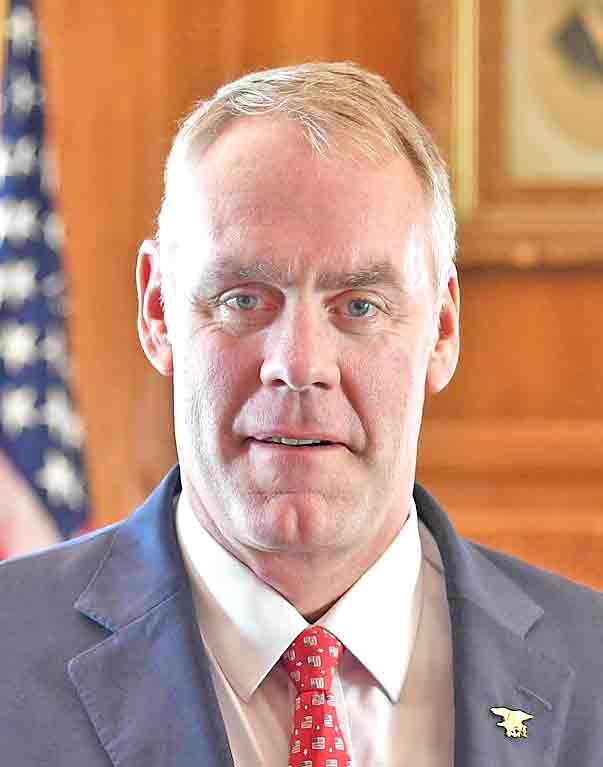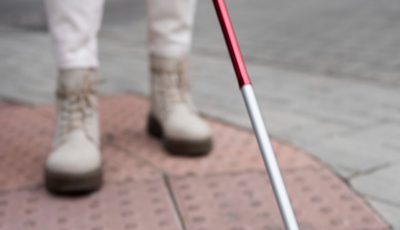CNMI gets $2M for conservation

Zinke
WASHINGTON—The U.S. Department of the Interior released yesterday $2,501,621 in funding to the Northern Mariana Islands to support critical state conservation and outdoor recreation projects.
This is part of $1.1 billion in annual national funding going to state wildlife agencies from revenues generated by the Pittman-Robertson Wildlife Restoration and Dingell-Johnson Sport Fish Restoration acts.
As part of this funding distribution, American Samoa will get $2.5 million, Puerto Rico will get $6,971,438, Guam will get $2,501,621, the U.S. Virgin Islands will get $2,501,621, and Hawaii will get $8,304,999,
To date, more than $20.2 billion in funds, which are authorized by Congress, have been distributed to U.S. states and territories.
Northern Mariana Islands apportionments include $1,173,058 in Sport Fish Restoration funds and $1,328,563 in Wildlife Restoration funds.
American Samoa apportionments include $1,173,058 in Sport Fish Restoration funds and $1,328,563 in Wildlife Restoration funds.
Puerto Rico apportionments include $3,519,175 in Sport Fish Restoration funds and $3,452,263 in Wildlife Restoration funds.
The U.S. Virgin Islands apportionments include $1,173,058 in Sport Fish Restoration funds and $1,328,563 in Wildlife Restoration funds.
Guam apportionments include $1,173,058 in Sport Fish Restoration funds and $1,328,563 in Wildlife Restoration funds.
Hawaii apportionments include $3,519,175 in Sport Fish Restoration funds and $4,785,824 in Wildlife Restoration funds.
“Northern Mariana Islands sportsmen and women are some of our best conservationists and they contribute billions of dollars toward wildlife conservation and sportsmen access every year through the Pittman-Robertson and Dingell-Johnson Acts,” said Interior Secretary Ryan Zinke. “For nearly eighty years, states have been able to fund important conservation initiatives thanks to the more than $20 billion that has generated nationwide. Every time a firearm, fishing pole, hook, bullet, motor boat or boat fuel is sold, part of that cost goes to fund conservation. The best way to increase funding for conservation and sportsmen access is to increase the number of hunters and anglers in our woods and waters. The American conservation model has been replicated all over the world because it works.”
In a separate statement, Delegate Madeleine Z. Bordallo (D-GU) said: “We have a responsibility to care for and preserve our natural resources and these federal funds will help Guam agencies do just that. I am pleased that Secretary Zinke released $2.5 million in congressionally authorized funds for support conservation and outdoor recreation projects on our island. As Guam’s representative in Congress, I continue working to secure additional federal investment in Guam to benefit our community and island. I look forward to GovGuam putting these federal funds to good use.”
Zinke announced the release of the funds during his trip to Horicon, Wisconsin, where he presented a ceremonial check to the Wisconsin Department of Natural Resources for $34,966,603 while visiting the Horicon Marsh State Wildlife Area.
Allocations of the funds are authorized by Congress.
The funds, which are distributed by the U.S. Fish and Wildlife Service, are derived from excise taxes paid by the hunting, shooting, boating and angling industries on firearms, bows and ammunition and sport fishing tackle, some boat engines, and small engine fuel.
“Revenues generated by the Pittman-Robertson Wildlife Restoration and Dingell-Johnson Sport Fish Restoration acts provides funding to states to protect and conserve our nation’s fish and wildlife heritage today and for generations to come,” said Virgil Moore, president of the Association of Fish and Wildlife Agencies and Director of Idaho Fish and Game. “This funding mechanism serves as the foundation for fish and wildlife conservation in our country.”
Nationwide, the recipient state wildlife agencies have matched these funds with approximately $6.7 billion throughout the years, primarily through hunting and fishing license revenues.
For more information about the WSFR program visit http://wsfrprograms.fws.gov/. (Saipan Tribune)



























